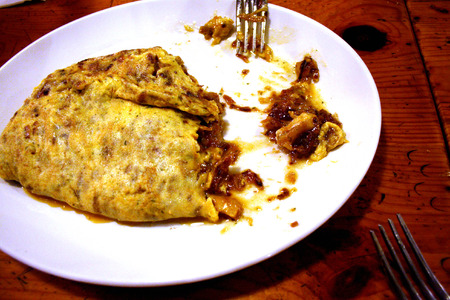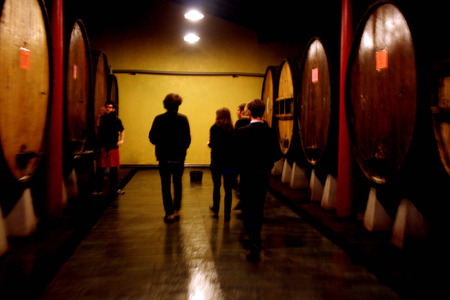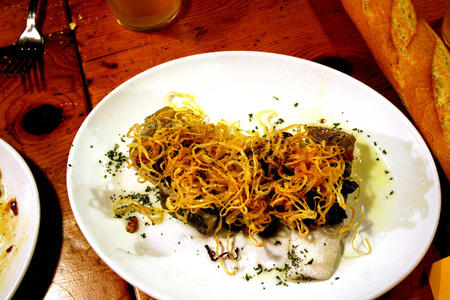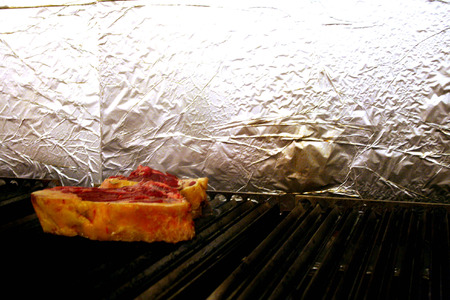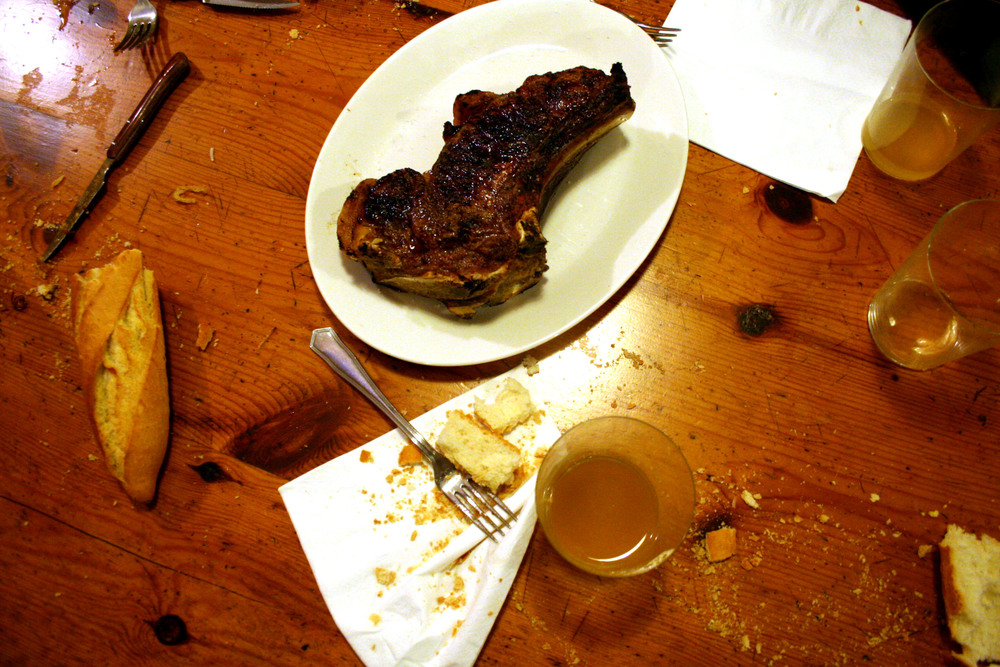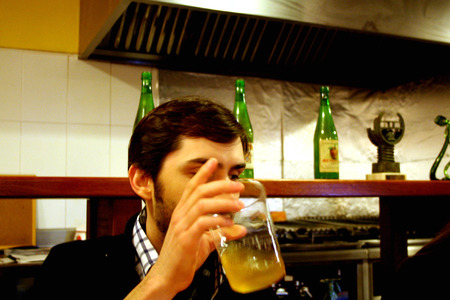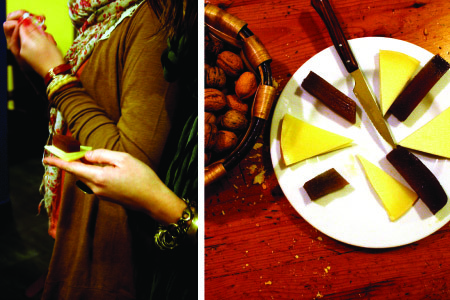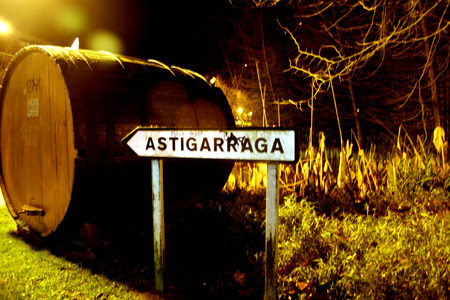txotx! kicking off cider season
TXOTXXXXXXX!
Pronounced choch, and more importantly, pronounced as loud and as forcefully as possible, this is the cry heard around País Vasco at this time of year. And it's always followed by an arching stream of fresh cider. Last week marked the kickoff of sagardoa season (sidra in Spanish, cider in English), and a group of us hit the road to Astigarraga, which lies about fifteen minutes outside of San Sebastián.
Starting in mid-January, cider houses (sidrerías) across the countryside open their doors for people to come try the year's new vintage. It's all-you-care-to-drink, and without fail accompanied by a traditional menu. First comes the "tortilla" de bacalao, which is much more of an omelette than a typical Spanish tortilla.
You sit at long wooden tables, ideally with a dozen of your best friends. Movement is constant...food coming and going, people heading towards the cider barrels to get refills. The tap is opened, cider arches through the air and lands in simple glasses, always in small amounts to minimize oxidation time.
After the tortilla comes the second course, which at Sidrería Astarbe consists of bacalao (salt cod), green peppers, and fried onions. It is simple, perfect, and delicious. The family that owns Astarbe has been making cider since 1563 (!).
Then the grill gets fired up, meat temperature orders are taken. The next course is a HUGE T-bone steak, or chuletón.
After several makeshift interviews and a long debate, I came to the conclusion that your choices in Spain are: poco hecho-very rare, a punto-mid rare, or muy hecho-well done. If you want something in between, be prepared to describe in detail as you ingratiate yourself to your waiter.
The cider itself is still, not sparkling, and easy to drink, with about a 5% alcohol level. According to the Diario Vasco, this year's vintage is a particularly beautiful yellow with green undertones. To give you a picture of the importance of the tradition here in Basque country, there was an unveiling mid-January with chef Karlos Arguiñano (who Arzak has called "the most important cook in the world") at the Museum of Cider/Sagardoetxea in Astigarraga, sidra's epicenter.
And the final course is always membrillo (typically translated as quince paste, although the membrillo in the cider house was of apple), walnuts, and Idiazabal cheese.
It's an incredible tradition and experience. The season lasts through April, and while there are cider houses open the whole year, you wouldn't catch someone from here dead in a cider house out of season. A colleague of mine was lamenting the already too-commercialized nature of the current sidrerías, saying that before it was an event for a weeknight, just to try the season's new cider. You would go with a couple friends, take your own food, sing a few songs (this, apparently, being an essential part of the process) and be home in bed by ten.
So the good old days are no more, but this is still an essential to-do for any daytripper to País Vasco.
sidrería astarbe:::Txoritokieta Bidea, 13 ::: 943551527
sidrería petrotegi:::Petrotegi Bidea ::: 943457188 (also recommended)


